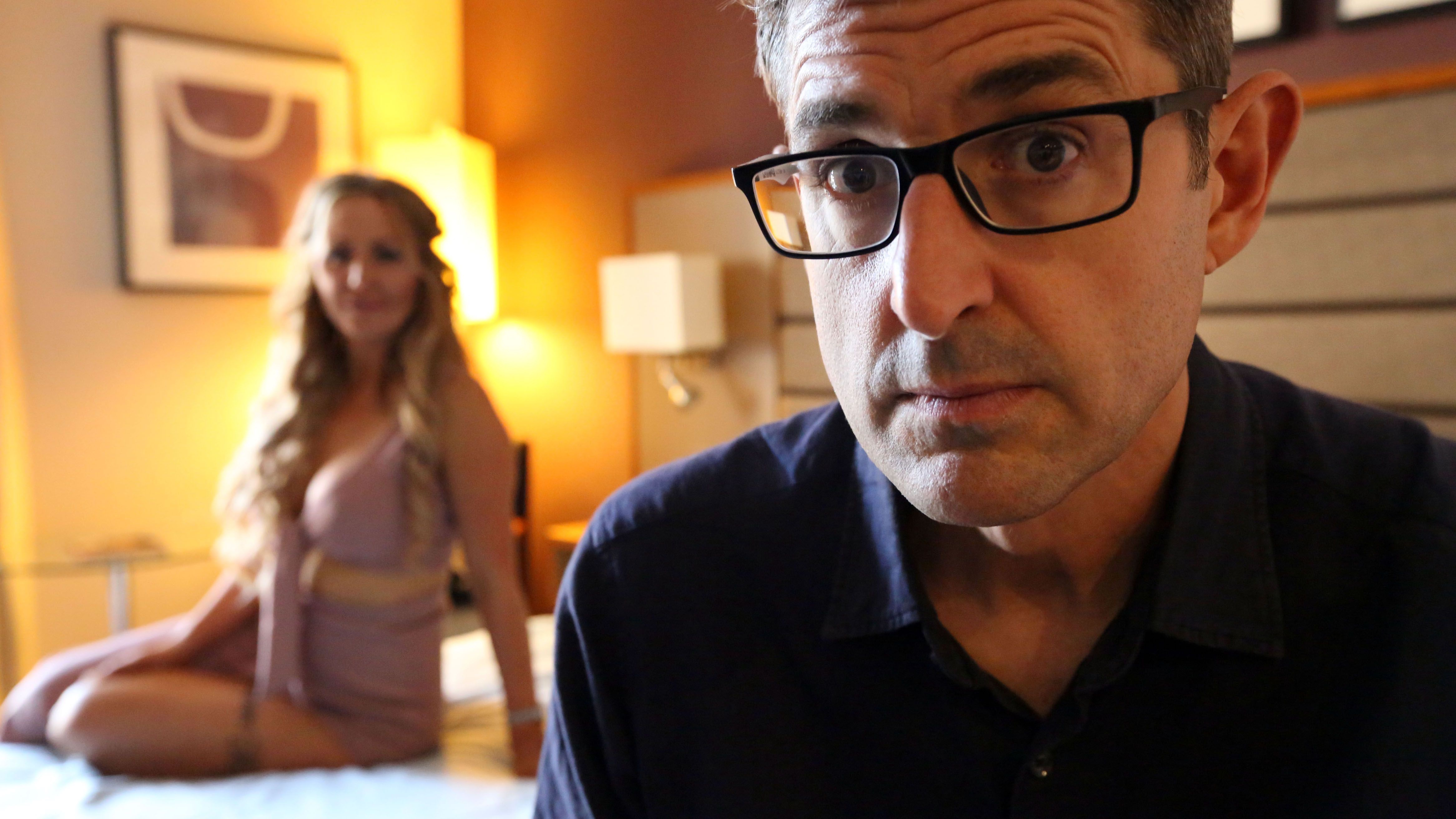Louis Theroux is an English documentary filmmaker who is known for his “Louis and …” films that he made in the early 2000’s, where he met and interviewed people who belonged to a minority and usually controversial group. He also looked into niche industries like gambling in Las Vegas and brothel’s, such as in Louis And The Brothel ( Louis Theroux, 2003), also looking into some more serious subjects like Law And Order in Lagos (Louis Theroux, 2010). His films are mostly in performative mode, since he involves himself in the films to get the real opinions out of interviewees and guide the audience as to what he is doing and he thinks of a subject matter or person.
“The faux-naïf persona he presents is deceptive to the interviewee because it will make them feel like they have to tell him everything from the basics, which is an advantage for the viewer as they will get the clearest picture of the subject that they are talking about.”
Louis’ Objectives:
Louis attempts to get the most honest and unhindered opinions of people involved in a subject, or to inform audiences on a niche or controversial topic that hasn’t been covered in other documentaries. He uses intrusive and personal questions that sometimes slightly story from the subject matter, to try and gauge the personal opinions of the interviewees, and show how large scale problems affect individual people, and relate to individual people. Since the subject matter he documents is unknown to Western audiences. Or he looks into more stigmatised topics like prostitution and the porn industry (Twilight of the Porn Stars, 2012) to show the inner-workings of them, and show the humanity and even relatability in such subject matters.
louis’ Style:
Louis Theroux is known for involving himself in his films to a large extent, often being the most recognisable feature of his works. He is a character who gives his own opinion and asks provocative questions to the interviewees. He aims to show the realistic and personal aspects of sensitive topics like crime and prison life, showing to everyday people what these topics are like for people affected by it or involved in it. Louis also makes assumptions about his interviewees, often to get them to give across their real opinion and forget that a camera is pointed at them. He has also gotten into confrontations with people, and tends to not back down since, as long as he is getting an emotional reaction, he is getting some sort of insight into a subject. He does not take an objective stance, giving his opinion and learning what someone else’s is, usually using his opinion as a contrast to their own and to relate to the questions that audience wants answered. He also creates humour in his films by including the real reactions to some provocative questions, not by making jokes but showing the sometimes foolish answers to his questions and giving his own, real reactions to things people say, relating to how the audience likely feels on matters like Nazism. He does not hold back his dislike for or confusion by some topics, since this provokes the interviewees into responding to his statements and getting the truth out of them.

You must be logged in to post a comment.